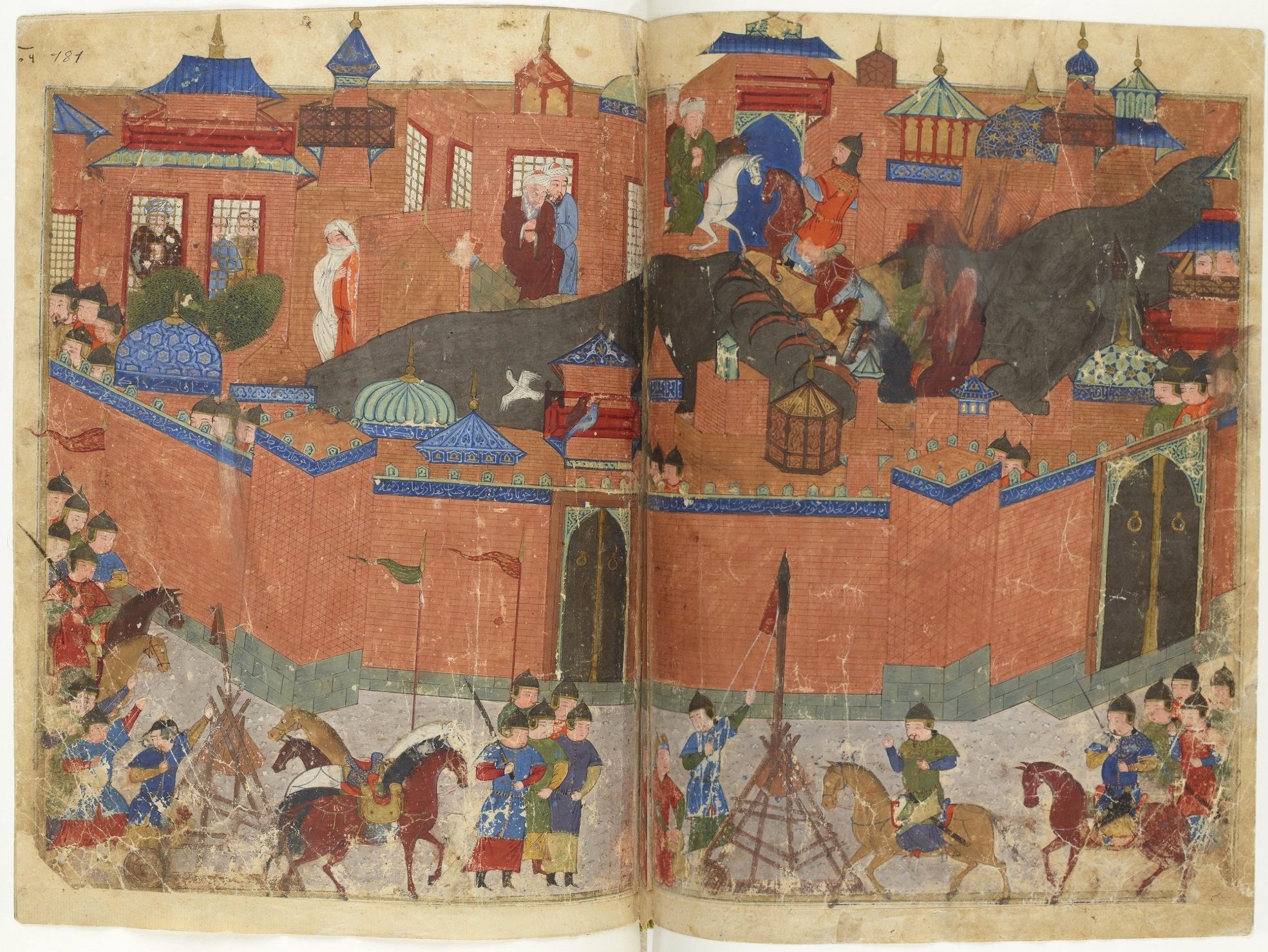Description
The siege of Baghdad took place in early 1258. A large army commanded by Hulegu, a prince of the Mongol Empire, attacked the historic capital of the Abbasid Caliphate after a series of provocations from its ruler, caliph al-Musta'sim. Within a few weeks, Baghdad fell and was sacked by the Mongol army—al-Musta'sim was killed alongside hundreds of thousands of his subjects. The city's fall has traditionally been seen as marking the end of the Islamic Golden Age; in reality, its ramifications are uncertain.







